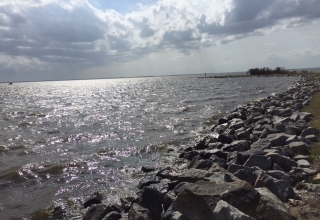
Misinformation propagated by manipulative leaders is particularly dangerous within certain kinds of in-groups fueled by what Aronson calls “emotional contagion”. This is the “rapid transmission of emotions or behaviors through a crowd” or in-group. This is particularly powerful when the “crowd” is an in-group where group affinity is based on powerfully shared beliefs which bind the in-group together. This kind of rapid contagion has little to do with facts, science or logic – it has to do primarily with emotion and the perception of potential danger and gullibility of in-group members.
At the time of this writing, the increase in mass shootings in the United States has also placed greater focus on conspiracy theories claiming that both the recent Buffalo and Uvalde shootings were staged events. Through individuals such as Alex Jones (Infowars), White nationalist and Holocaust denier Nick Fuentes and DeAnna Lorraine (who suggested that the Buffalo shooting “could just be all just a false flag to target the white guy”), lies, inuendo and harmful conspiracy theories are rapidly expanding.
As a counterpoint to the role of social media being primarily responsible for propagating misinformation, Joelle Renstrom (2022) writes in his article entitled “How science helps fuel a culture of misinformation” in which he describes that “we tend to blame the glut of disinformation in science on social media and the news, but the problem often starts with the scientific enterprise itself”. Renstrom describes:
Universities want their scientists to win prestigious grants and funding, and to do that, the research has to be flashy and boundary-pushing. PR offices may add to that flash by exaggerating the certainty or implications of findings in press releases, which are routinely published almost verbatim in media outlets. The demand for headline-worthy publications has led to a surge in research studies that can’t be replicated. Results of a reproducibility project published by the Center for Open Science found that only 26% of the top cancer studies published between 2010 and 2021 could be replicated, often because the original papers lacked details about data and methodology. Compounding the problem, researchers cite these nonreplicable studies more often than those that can be replicated, perhaps because they tend to be more sensational and therefore get more clicks”.
Indeed, the authors have previously commented on the need for greater critical thinking skills to limit the belief in conspiracy theories, lies and misinformation, but as Renstrom notes “Scientists aren’t responsible for the critical thinking skills of the average reader or the revenue models of journals, but they (scientists and experts) should recognize how they contribute to the spread of misinformation”. Evidently, the question of trust and credibility of experts, leaders and expertise in general, is not a one-sided issue. Leaders and experts themselves have a long road to travel to gain and sustain the trust of the general population.
The Truth About Lies IV: A Psychodynamic Perspective
We wish to offer one other perspective on the nature and dynamics of lies and misinformation. This perspective is based on a belief among many psychoanalytically oriented psychologists and psychiatrists that each of us has our own “media center” located deep in our psyche. We don’t need outside media forces and manipulative politicians to engage in deception, denial and deflection. We can do a pretty good job of engaging these “weapons” as internal psychodynamic process.















